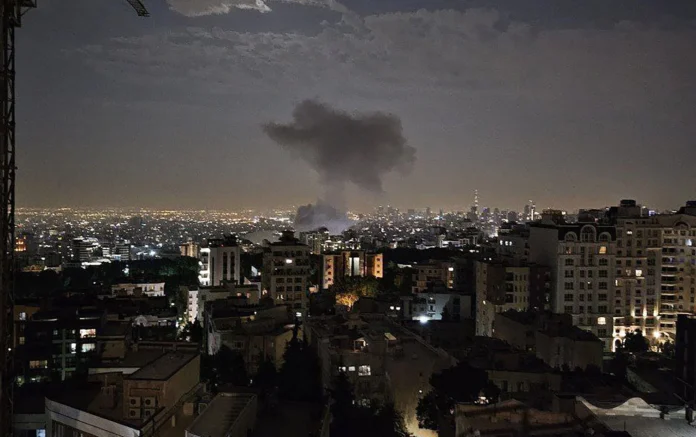Israel’s unprecedented strikes on Iran have dramatically intensified Middle East tensions. Early Friday, explosions rocked Tehran and other key locations, marking a major escalation in the long-standing conflict between the two nations. The Israeli military confirmed targeting Iran’s nuclear facilities and elite military commanders, inflicting severe damage.
Around 3:30 AM local time, blasts erupted in Tehran, with additional strikes near the Natanz nuclear facility. Israel’s Defense Forces (IDF) stated they hit “dozens of military and nuclear targets.” The Natanz site, crucial for uranium enrichment, reportedly suffered significant damage. However, Iranian authorities denied any radiation leaks.
The International Atomic Energy Agency (IAEA) condemned the attacks, warning against jeopardizing nuclear safety. Meanwhile, Iran’s Revolutionary Guards confirmed the death of top commanders, including Hossein Salami and Mohammad Bagheri. Several nuclear scientists also perished in the assault.
Iran’s Supreme Leader Ayatollah Ali Khamenei promised “severe punishment,” while Foreign Minister Abbas Araghchi called the attack a “declaration of war.” Shortly after, Iran launched approximately 100 drones toward Israel, though most were intercepted.
The U.S. denied involvement but emphasized protecting its forces in the region. President Donald Trump urged Iran to negotiate, warning of further devastation. Meanwhile, the UK, France, and other nations called for de-escalation, fearing broader conflict.
Israeli Prime Minister Benjamin Netanyahu justified the operation, named “Rising Lion,” as necessary to counter Iran’s nuclear threat. He claimed Tehran could produce nuclear weapons “within days.” The strikes follow stalled U.S.-Iran talks, with Netanyahu favoring military action over diplomacy.
Analysts suggest Israel’s unprecedented strikes on Iran aim to cripple its nuclear capabilities permanently. The attack also weakens Iran’s military leadership, creating uncertainty about Tehran’s next move.
Oman, a mediator in nuclear talks, blamed Israel for the escalation. Saudi Arabia, China, and Turkey also condemned the strikes, warning of regional instability. The UN urged restraint, fearing a wider war.
With both nations on high alert, the world watches anxiously. Israel’s unprecedented strikes on Iranhave reshaped the conflict, leaving global powers scrambling to prevent further chaos.
As tensions rise, the question remains: Will diplomacy prevail, or is all-out war inevitable?
For more regional updates, visit DC Brief.


